17 start with V start with V
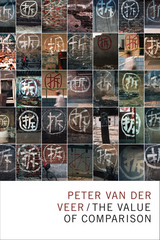
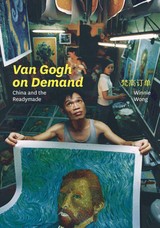
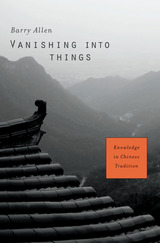
Vanishing into Things explores the concept of knowledge in Chinese thought over two millennia, from Confucius to Wang Yangming (ca. 1500 CE), and compares the different philosophical imperatives that have driven Chinese and Western thought. Challenging the hyperspecialized epistemology of modern philosophy in the West, Barry Allen urges his readers toward an ethical appreciation of why knowledge is worth pursuing.
Western philosophers have long maintained that true knowledge is the best knowledge. Chinese thinkers, by contrast, have emphasized not the essence of knowing but the purpose. Ideas of truth play no part in their understanding of what the best knowledge is: knowledge is not deduced from principles or reducible to a theory. Rather, in Chinese tradition knowledge is expressed through wu wei, literally “not doing”—a response to circumstances that is at once effortless and effective. This type of knowledge perceives the evolution of circumstances from an early point, when its course can still be changed, provided one has the wisdom to grasp the opportunity.
Allen guides readers through the major Confucian and Daoist thinkers including Kongzi, Mengzi, Xunzi, Laozi, and Zhuangzi, examining their influence on medieval Neoconfucianism and Chan (Zen) Buddhism, as well as the theme of knowledge in China’s art of war literature. The sophisticated and consistent concept of knowledge elucidated here will be of relevance to contemporary Western and Eastern philosophers alike.

In Varieties of State Regulation, Yukyung Yeo explores how, despite China’s increasing integration into the global market, the Chinese central party-state continues to oversee the most strategic sectors of its economy. Since the 1990s, as major state firms were spun off from the ministries that managed them under the central planning system, the nature of the state in governing the economy has been remarkably transformed into that of a regulator.
Based on over 100 interviews conducted with Chinese central and local officials, firms, scholars, journalists, and consultants, the book demonstrates that the form of central state control varies considerably across leading industrial sectors, depending on the dominant mode of state ownership, conception of control, and governing structure. By analyzing and comparing institutional dynamics across various sectors, Yeo explains variations in the pattern of China’s regulation of its economy. She contrasts the regulation of the automobile industry, a relatively decentralized sector, with the highly-centralized telecommunications industry, and demonstrates how China’s central party-state maintains regulatory authority over key local state-owned enterprises. Placing these findings in historical and comparative contexts, the book presents the evolution and current practice of state regulation in China and examines its compatibility with other contemporary government practices.
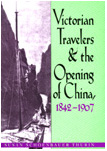
Three men and three women: a plant collector, a merchant and his novelist wife, a military officer, and two famous women travelers went to China between the Opium War and the formal end of the opium trade, 1842–1907. Their range of perspectives, their acquaintance with one another and their similar scope of travel to Hong Kong, the treaty ports, and Sichuan lend intensity to their picture of China and the Western presence there.
What the travelers record reveals is a continuity in the response of the West and China to each other. Susan Schoenbauer Thurin’s study of these writings presents a rich tapestry of impressions, biases, and cultural perspectives that inform our own understanding of the Victorians and their views of the world outside their own.
The strange mix of opium and missionaries, the aura of fabled “Cathay” and its valuable trade items, the attraction and repulsion of the exotic otherness the travelers experience, reflect the political, religious, and racial views of their era, and explain the allure of the Orient that, in part, characterized their age. Victorian Travelers and the Opening of China, 1842–1907 is a remarkable look into the cultural past.

Why did the Vietnamese accept certain Chinese institutions and yet explicitly reject others? How did Vietnamese cultural borrowings from China alter the dynamics of traditional relations between Vietnam, Siam, Laos, and Cambodia? How did Vietnam's smaller Southeast Asian environment modify and distort classical East Asian institutions?
Woodside has answered these questions in this well-received political and cultural study. This first real comparison of the civil governments of two traditional East Asian societies on an institution-by-institution basis is now reissued with a new preface.

Why did the Vietnamese accept certain Chinese institutions and yet explicitly reject others? How did Vietnamese cultural borrowings from China alter the dynamics of traditional relations between Vietnam, Siam, Laos, and Cambodia? How did Vietnam’s smaller Southeast Asian environment modify and distort classical East Asian institutions?
Alexander Woodside has answered these questions in this well-received political and cultural study. This first real comparison of the civil governments of two traditional East Asian societies on an institution-by-institution basis is now reissued with a new preface.
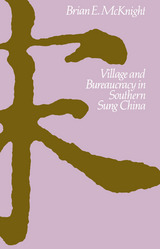

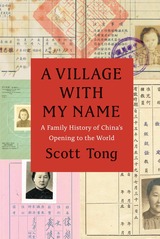
A Village with My Name offers a unique perspective on the transitions in China through the eyes of regular people who have witnessed such epochal events as the toppling of the Qing monarchy, Japan’s occupation during World War II, exile of political prisoners to forced labor camps, mass death and famine during the Great Leap Forward, market reforms under Deng Xiaoping, and the dawn of the One Child Policy. Tong’s story focuses on five members of his family, who each offer a specific window on a changing country: a rare American-educated girl born in the closing days of the Qing Dynasty, a pioneer exchange student, an abandoned toddler from World War II who later rides the wave of China’s global export boom, a young professional climbing the ladder at a multinational company, and an orphan (the author’s daughter) adopted in the middle of a baby-selling scandal fueled by foreign money. Through their stories, Tong shows us China anew, visiting former prison labor camps on the Tibetan plateau and rural outposts along the Yangtze, exploring the Shanghai of the 1930s, and touring factories across the mainland.
With curiosity and sensitivity, Tong explores the moments that have shaped China and its people, offering a compelling and deeply personal take on how China became what it is today.
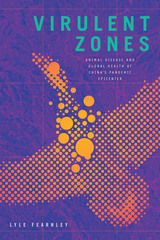

This book explores the parallel and yet profoundly different ways of seeing the outside world and engaging with the foreign at two important moments of dislocation in Chinese history, namely, the early medieval period commonly known as the Northern and Southern Dynasties (317–589 CE), and the nineteenth century. Xiaofei Tian juxtaposes literary, historical, and religious materials from these two periods in comparative study, bringing them together in their unprecedentedly large-scale interactions, and their intense fascination, with foreign cultures.
By examining various cultural forms of representation from the two periods, Tian attempts to sort out modes of seeing the world that inform these writings. These modes, Tian argues, were established in early medieval times and resurfaced, in permutations and metamorphoses, in nineteenth-century writings on encountering the Other. This book is for readers who are interested not only in early medieval or nineteenth-century China but also in issues of representation, travel, visualization, and modernity.
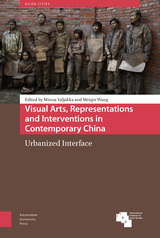
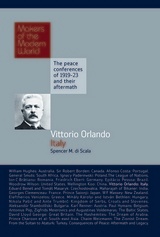
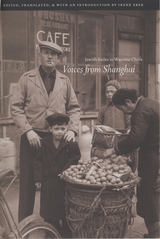
When Hitler came to power and the German army began to sweep through Europe, almost 20,000 Jewish refugees fled to Shanghai. A remarkable collection of the letters, diary entries, poems, and short stories composed by these refugees in the years after they landed in China, Voices from Shanghai fills a gap in our historical understanding of what happened to so many Jews who were forced to board the first ship bound for anywhere.
Once they arrived, the refugees learned to navigate the various languages, belief systems, and ethnic traditions they encountered in an already booming international city, and faced challenges within their own community based on disparities in socioeconomic status, levels of religious observance, urban or rural origin, and philosophical differences. Recovered from archives, private collections, and now-defunct newspapers, these fascinating accounts make their English-languge debut in this volume. A rich new take on Holocaust literature, Voices from Shanghai reveals how refugees attempted to pursue a life of creativity despite the hardships of exile.

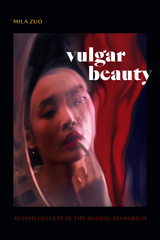
READERS
Browse our collection.
PUBLISHERS
See BiblioVault's publisher services.
STUDENT SERVICES
Files for college accessibility offices.
UChicago Accessibility Resources
home | accessibility | search | about | contact us
BiblioVault ® 2001 - 2024
The University of Chicago Press









